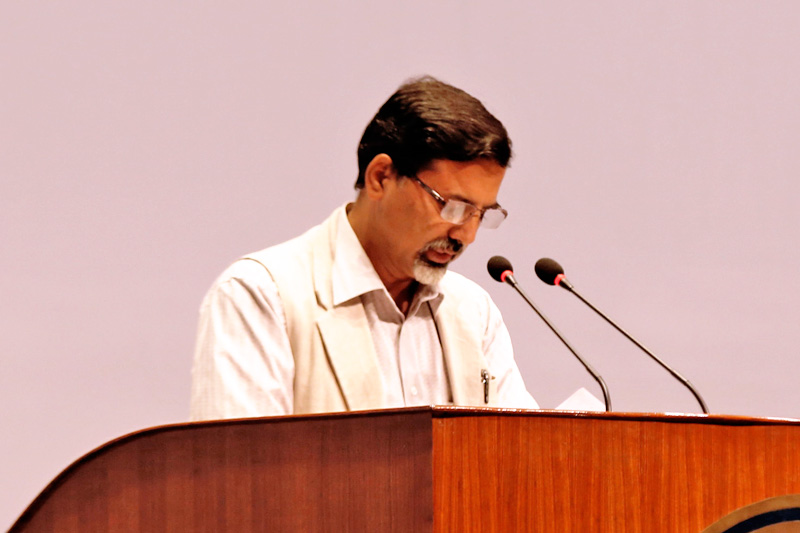Energy minister approves projects he had rejected as PAC chief
Kathmandu, November 12
Minister for Energy Janardan Sharma has given the go-ahead to contractual agreements and payment releases of the transmission line and hydroelectric project that were brought into the domain of the Public Accounts Committee for investigation when he was chairman of the parliamentary panel.
After being appointed energy minister, Sharma instructed Nepal Electricity Authority to release payment to China Gezhouba Group Corporation — the contractor of Chameliya Hydroelectric Project — that had accrued due to cost variation of the tunnel.
The contractor had claimed Rs 1.9 billion to open a length of 843 metres of the four-km tunnel that had constricted due to mudslides. The NEA board, led by then energy minister Radha Gyawali, had approved the variation order, but PAC had instructed the MoE and NEA to halt payment.
Work on the project resumed in the last week of September after being halted for two years, under Sharma’s instruction.
Recently, MoE also allowed NEA to move ahead with implementation of the Solu Corridor Transmission Line Project on the basis of a contractual agreement with Mohan Energy Corporation. The PAC, on April 22, had directed NEA through the MoE to halt the project work until further notice. PAC had launched an investigation into the decision to award the contract for the SCTLP.
“Sharma had written to the MoE to suspend project works until PAC issued further notice after investigation,” said Ram Hari Khatiwada, a member of the parliamentary panel. “It is strange how Sharma has suddenly become positive about Solu Corridor project — which he once suspected of irregularities in the contract awarding process — after becoming energy minister.”
Mohan Energy, the second lowest bidder for the SCTLP, was selected despite the lowest bid by Jaguar Overseas and BS Ltd. Mohan Energy had bid $22.97 million, whereas Jaguar Overseas and BS had bid $20.35 million.
The issue came under the radar of the Commission for the Investigation of Abuse of Authority. Then energy minister Gyawali had to quit. The Supreme Court later gave a clean chit to Gyawali.
Later, MoE and NEA jointly negotiated with Mohan Energy and reduced the construction cost by around $1 million.
The Public Procurement Monitoring Office has termed this ‘a malpractice against the principle of public procurement and existing Public Procurement Law’.
The PAC also launched a probe into why the bidder agreed to reduce the cost by $1 million. Work on the project was stalled for five months after PAC’s instruction. But now Energy Minister Sharma has instructed that work on the project be resumed without any notice from the PAC.






